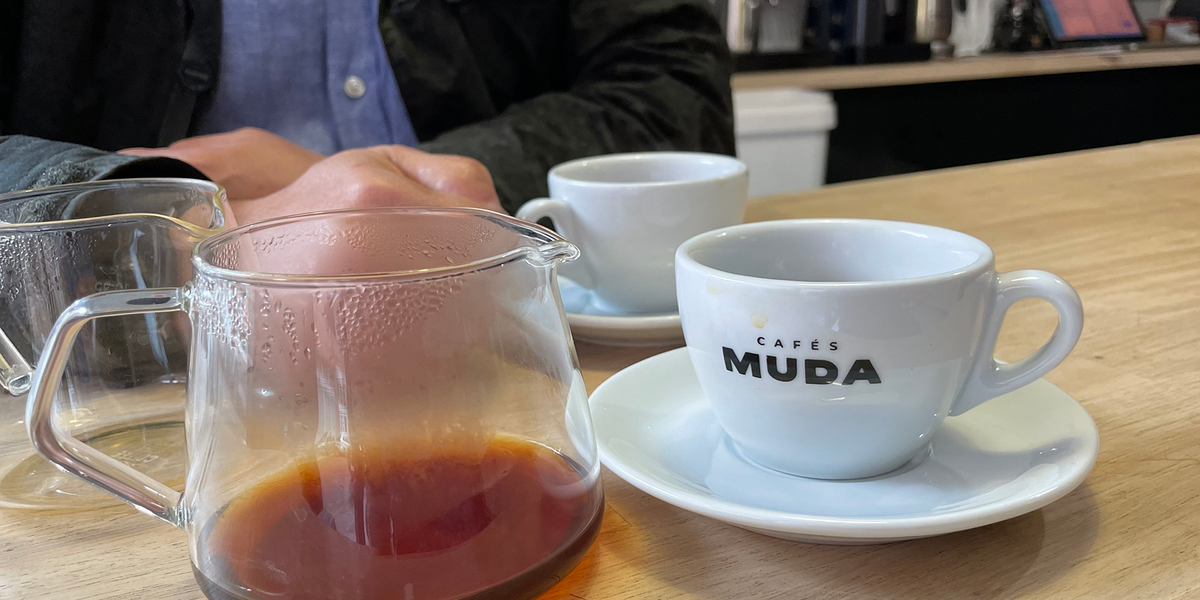

“How did you find me?” specialty coffee roaster Dajo Aertssen asked. He’d just handed me a bag of single-origin cascara, the dried flesh of coffee cherries, in his shop, Cafés Muda in Lille, France.
“The AI sent us,” I replied.
He looked puzzled, so I explained that my companion Dawn and I had asked an app called Perplexity AI to name a “coffee roaster in central Lille,” and that it suggested four places, including Muda. It had linked to a Web page that mentioned Aertssen’s French and world cup tasting championships and that he sources the kinds of beans I enjoy, like Muda’s sidra from Colombia, which tastes like raspberry jam. When I alluded to his status as a supertaster, Aertssen beamed, astonished that I knew anything about him at all.
Dawn and I used Perplexity as an on-demand travel guide throughout our tour of the Flemish region of Belgium and Northern France. The chatbot-based, generative-search startup was founded in 2022 and backed by Nvidia, Jeff Bezos, and New Enterprise Associates, among others. The company’s app rests on GPT-3.5 (the free version) or GPT-4 (the paid version, which I used) and incorporates the company’s own page-ranking algorithm, large language model, and natural-language-processing system.
Perplexity aims to provide an alternative to the broken Google search experience, which forces users to sift through ads, paid placements, and AI-generated junk posts to find what they’re looking for. Perplexity gives answers to questions along with links to the sources it uses. According to search engine optimization company BrightEdge, website referral traffic from Perplexity has been increasing 40 percent per month since January.
As we criss-crossed the countryside seeking cycling museums, waffles, and beer, we passed dozens of wind turbines, prompting me to ask “How much of France’s total energy generation comes from wind power?” (Perplexity didn’t exactly answer this one, but referenced an International Energy Agency site that stated wind met 7.8 percent of national electricity demand in 2021.) Next: “Where can I buy distilled water near me right now?” (In the nearest Carrefour hypermarket, in the housekeeping section, it turns out.) Then we flipped on the audio response mode so the vaguely English-accented male voice could “tell us about the construction of the cathedral in Amiens, France,” which we were going to the next day.
Despite the occasional miss, we agreed that the app significantly enhanced our real-world experience and connected us to Flemish culture and people.
Those connections would not have been as convenient, or maybe even possible, without the Internet—which provides the data on which generative search and many popular large language models rely—and without the seminal contributions of this year’s Medal of Honor recipient, Bob Kahn, whom Senior Editor Tekla S. Perry profiles on page 36 in this issue.
Kahn is being honored for his work on packet communication technologies, which were part of the project that became the ARPANET and the foundations of the Internet. Could he have foreseen people driving around asking an AI-powered search app any question that popped into their heads? Probably not. As Perry writes: “Other than generally thinking that it would be nice if computers could talk to one another, Kahn didn’t give much thought to applications.”
“If you were engineering the Bell system,” Kahn told Perry, “you weren’t trying to figure out who in San Francisco is going to say what to whom in New York. You were just trying to figure out how to enable conversations.”
Kahn’s creations are enabling conversations today, with chatbots in cars and coffee roasters in cafés around the world.
This article appears in the May 2024 print issue as “Making Connections.”
Reference: https://ift.tt/St7UeEu
No comments:
Post a Comment